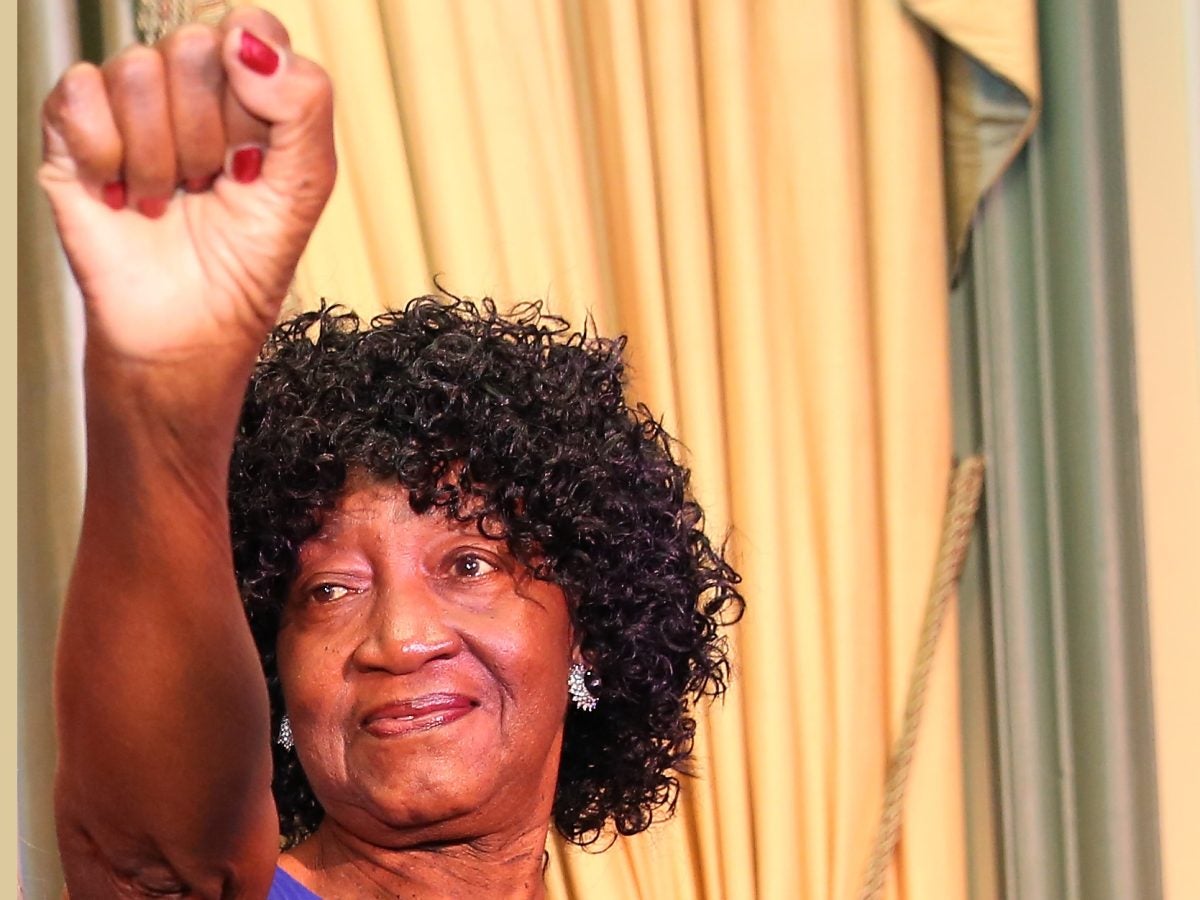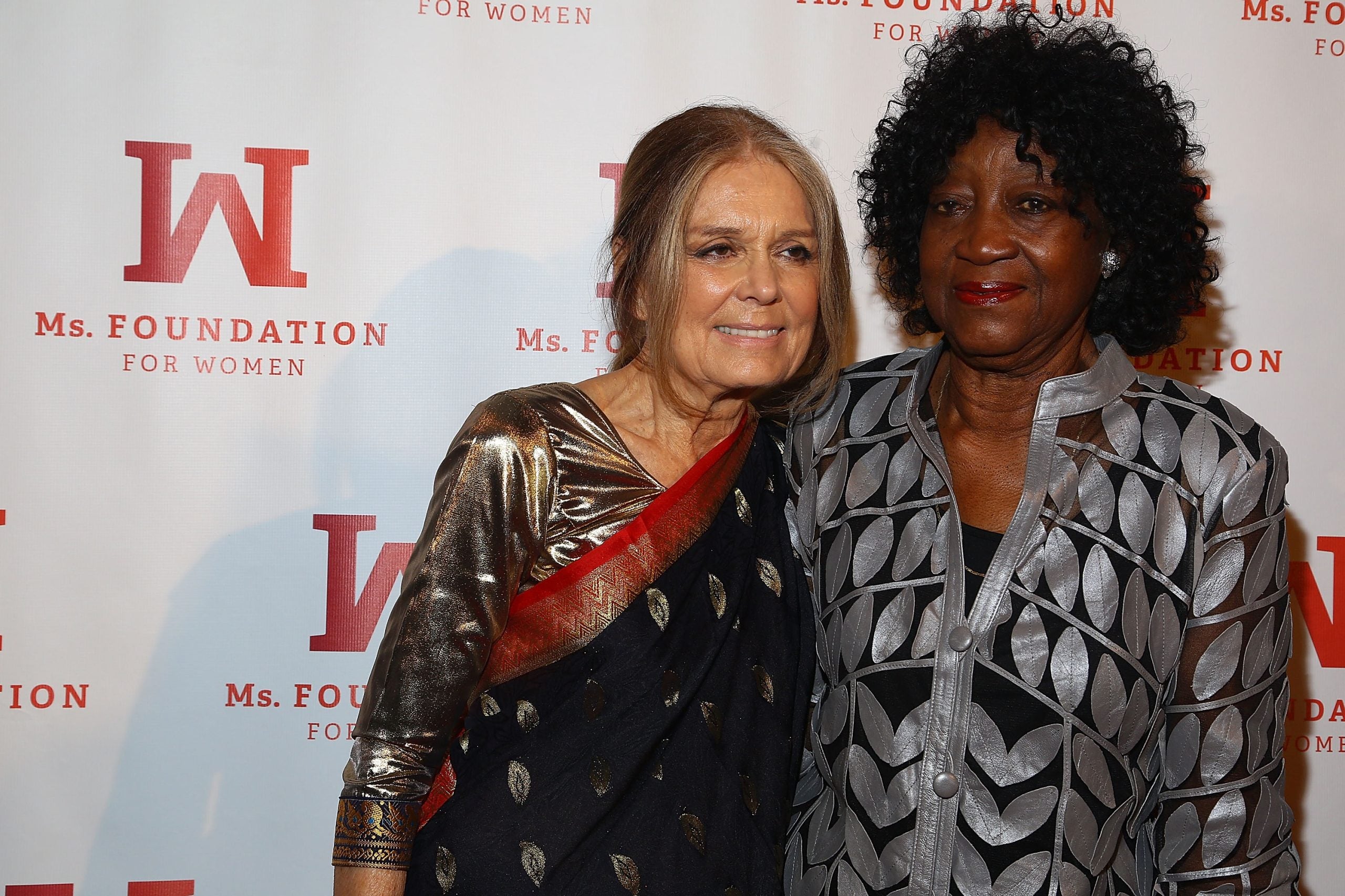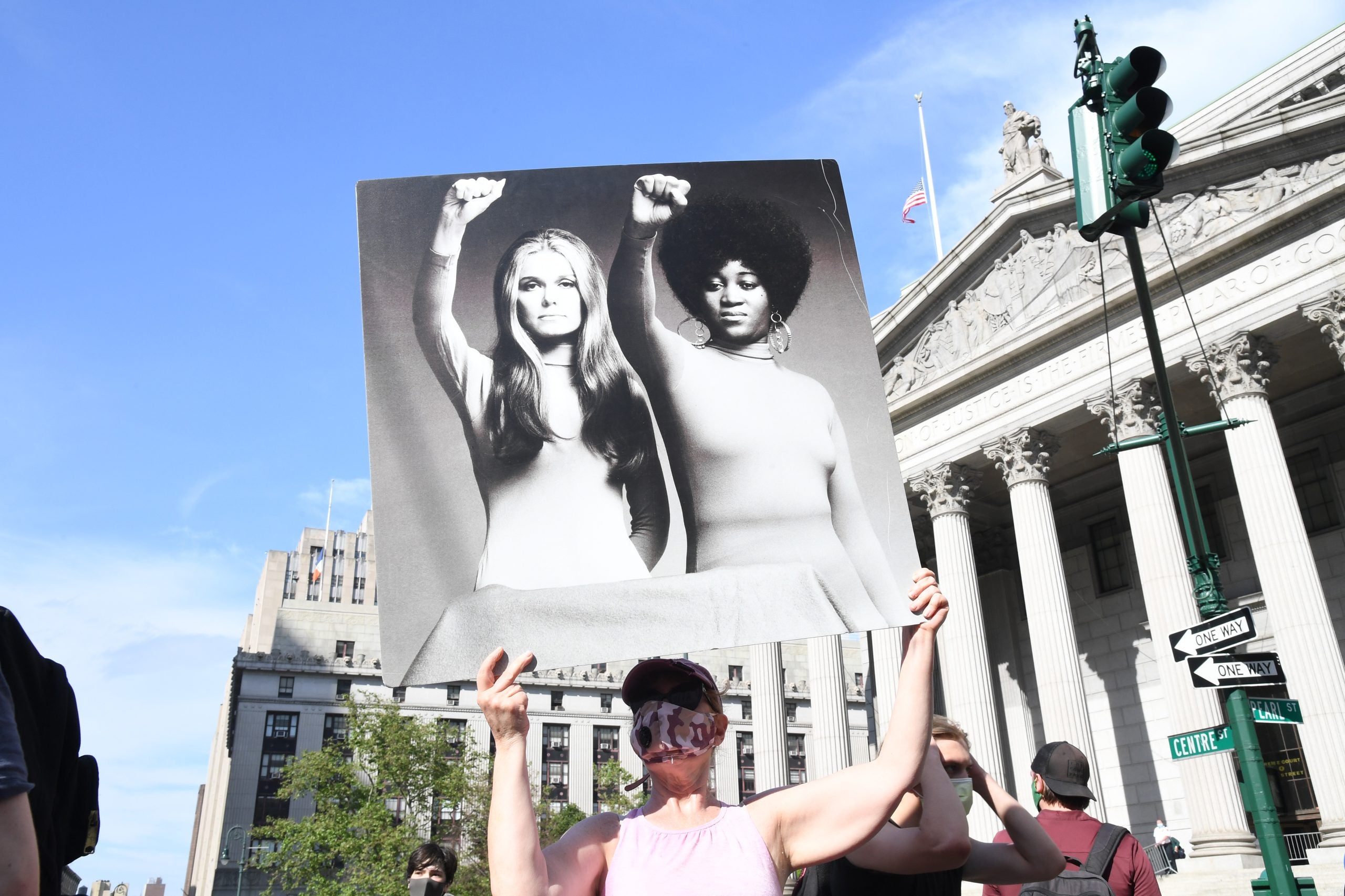
“I’m speaking about sexism and racism and I think that it’s needed,” said Dorothy Pitman Hughes, Black feminist thought leader, during a 1971 interview. Pitman Hughes was well known for her work centering children and women’s equality. She was also recognized for co-founding the Women’s Action Alliance and inspiring the launch of Ms. magazine.
A community organizer at her core, she advocated for the most vulnerable populations for more than 40 years.
Pitman Hughes died on December 1, a source confirmed to ESSENCE. She was 84 years old.
Pitman Hughes was born Dorothy Jean Ridley in Lumpkin, Georgia in 1938. When she was a child, her father, Melton Lee Ridley, was brutally beaten by the Ku Klux Klan and left for dead on her family’s porch. The girl prayed that if her father lived, she would devote herself to “making the world a better place.”
Upon dropping out of high school, Hughes moved to New York City to pursue a career in music. According to Dr. Laura L. Lovett, the author of With Her Fist Raised: Dorothy Pitman Hughes and the Transformative Power of Black Community Activism, Hughes worked as a nightclub singer at Maxwell’s Plum, a Manhattan bar. During her days at home, she noticed children were taking care of their homes while their parents worked, and decided to transform her home into a daycare center.
“For her, it was really important that everyone have a part in the childcare center. So she had a limit on how much they could charge and a really democratic perspective that everyone would have a role in running it,” Dr. Lovett tells ESSENCE. “There was a study that was done of childcare centers. It was ranked as one of the hundred best in the country.”
Pitman Hughes gave birth to her first child, a daughter named Delethia, in 1960.
By the late 1960s, Harlem was ravaged by poverty, substance abuse, and mental health issues for many of those who had served in the Vietnam War. Gordon Parks’ heart wrenching 1967 photographs of one destitute family illustrates the immense strain Harlem’s families were under. For decades, Pitman Hughes poured into the community that became an epicenter of Black cultural expression 40 years earlier.
Beyond her child care center, Pitman Hughes continued to keep her childhood promise. She worked with the Congress on Racial Equality (CORE), first as a secretary, and then as a fundraiser to establish a search party for missing civil rights workers Michael Schwerner, James Cheney, and Andrew Goodman. After the men’s bodies were found (they were killed by Klansmen in Mississippi in 1964), the funds were used to support their families.

She married Irish Republican Army member Bill Pitman in 1964. They had a daughter, Patrice, the following year.
It is also around the time of her marriage that Pitman Hughes connected with Malcolm X. By this time, he had splintered off from the Nation of Islam. She became affiliated with his burgeoning group, the Organization of Afro-American Unity. Lovett’s book reports that Pitman Hughes even watched the family’s four daughters.
Pitman Hughes and Bill Pitman divorced in the late 1960s.
In 1969, journalist Gloria Steinem interviewed Pitman Hughes for a story on her community-focused daycare center. The two struck up a friendship, with Pitman Hughes being the more well known figure. She encouraged Steinem when the latter was afraid to speak publicly and the two routinely did press and spoke across the U.S. together. Pitman Hughes also taught Steinem about Black feminism, as Black women were critical of the the women’s liberation movement due to the history-based tendency of white women to ignore all other plights except their own.
She went on to inspire Steinem to launch Ms. magazine, a progressive publication and predecessor to platforms like Bitch, Jezebel, gal-dem and post-2016 Teen Vogue. Early writers included Alice Walker and Toni Morrison. Hughes also co-founded the Women’s Action Alliance, a feminist organization, the same year. It was also in 1971 that Esquire ran an era-defining photo of Steinem and Hughes with raised fists, an expression of solidarity. The photo was taken by Dan Wynn and lives in the National Portrait Gallery in Washington D.C.

In the 1970s, Pitman Hughes married Clarence Hughes. Together they had a daughter, naming her after educator activist Angela Davis. Pitman Hughes, a serial entrepreneur, also opened a second daycare. She didn’t stop there, allowing her interest in community organizing to inspire another business.
“She was working with the Harlem Breakfast Program, the Black Panthers’ Breakfast Program and all these other programs, and there was never a copy shop in Harlem,” Dr. Lovett says. “So it was a site of all this organizing, but there was never a place to actually make the resources for organizing. So she goes from running the childcare centers to creating what’s she called Harlem Office Supply, which was a combination Black history bookstore and copy center.”
A Staples was opened across the street, motivating Hughes to call out the issue of gentrification in Harlem.
Pitman Hughes later self-published two books: Wake Up and Smell the Dollars! Whose Inner-City Is This Anyway!: One Woman’s Struggle Against Sexism, Classism, Racism, Gentrification, and the Empowerment Zone and I’m Just Saying… It Looks Like Ethnic Cleansing (the Gentrification of Harlem).
Prior to the 2000 release of Wake Up and Smell the Dollars!.., Pitman Hughes relocated to Jacksonville, Florida, at the request of former Edward Waters College president Jimmy Jenkins. While there, she launched another bookstore. Once the store was operating, she left for New York again.
She returned to Florida, where her daughter Delethia lives, after the recount following the 2000 presidential election. Pitman Hughes also focused on establishing community gardens to create jobs and keep people fed. Organizing was still pressed on her heart.
“She created a group called Boots on the Ground for Hillary,” Dr. Lovett shares. “And if you look at the returns in Jacksonville, it swings for Hillary. I think that that was Dorothy, in her [70s], still organizing.”
Singer and actress Janelle Monae portrayed Hughes in 2020 in the film The Glorias.
In 2021, Dr. Lovett’s biography on Pitman Hughes’ life was published. Dr. Lovett worked on the book for seven years after meeting Pitman Hughes in 2011.
“My sense of Dorothy is that there was always work to do, and she was always doing it,” Dr. Lovett says.




